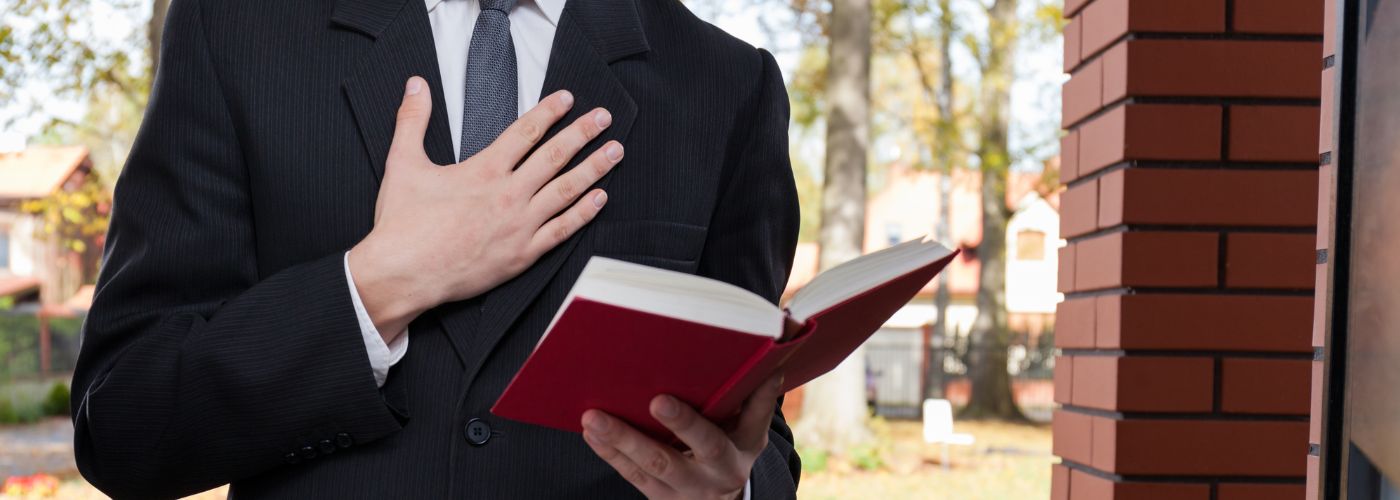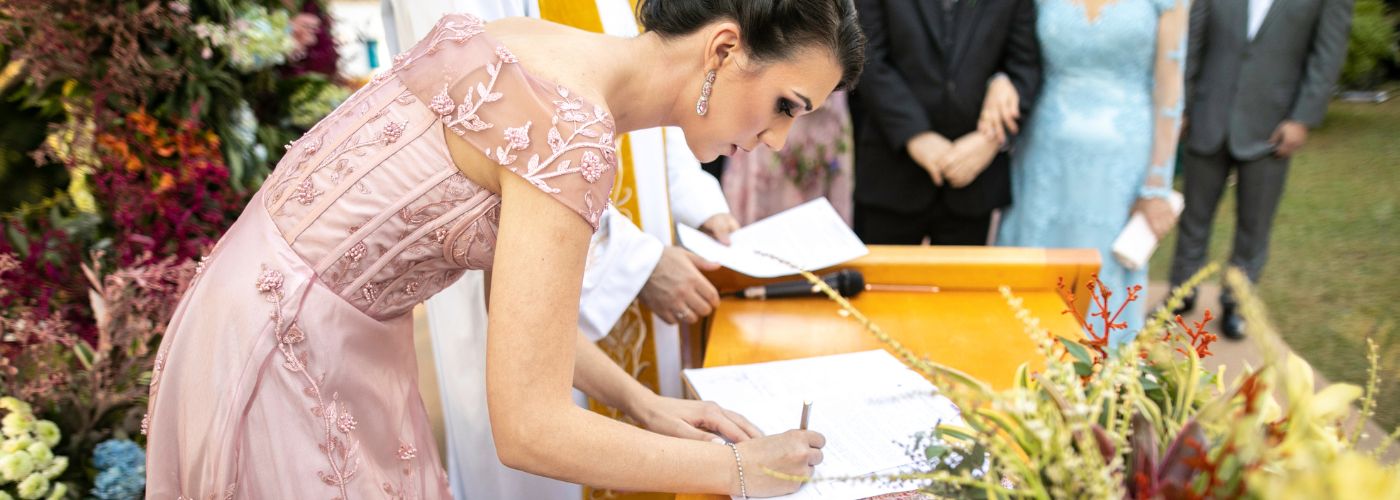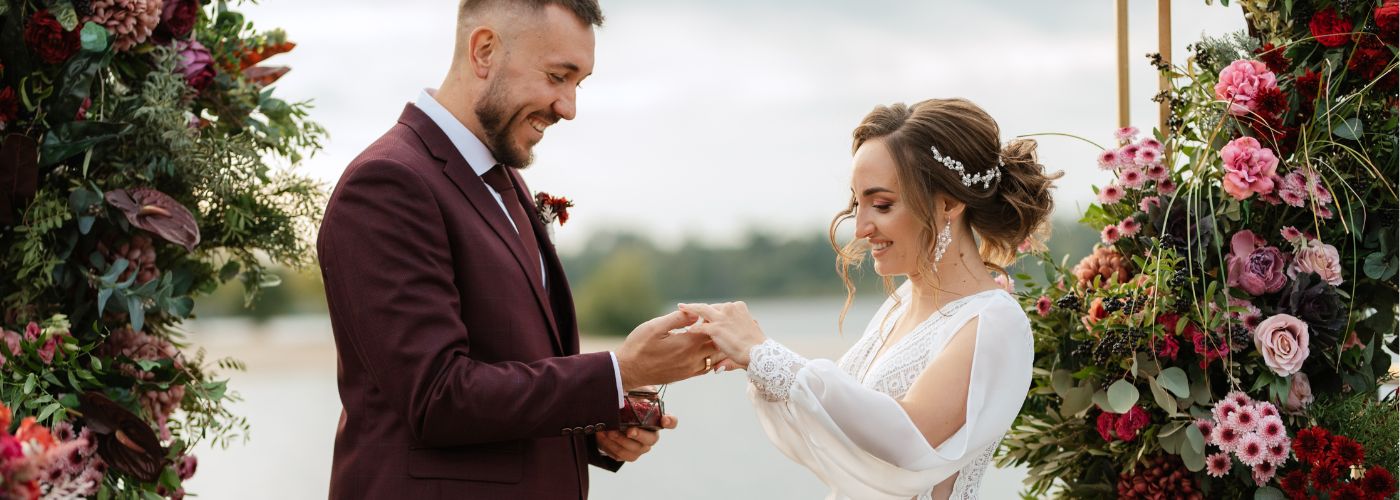Planning your dream wedding involves more than just choosing flowers and dresses—it also includes understanding the essential role of a wedding witness.
In this guide, we’ll navigate through the ins and outs of wedding witnesses, answering crucial questions about who can be a witness, how many witnesses you need, and if family members can play this significant role. Let’s delve into the world of wedding witness essentials!
Who Can Be A Witness At A Wedding?
The role of a wedding witness is an important one—they are there to observe the ceremony and sign the marriage license, confirming that they witnessed the union. So, who can take on this meaningful responsibility?
Adults in Good Standing: In most jurisdictions, wedding witnesses must be adults, typically 18 years or older. They should be individuals of legal age and in good standing within the community.
Close Friends or Family: Wedding witnesses are often chosen from the couple’s close circle of friends or family members. It’s a role that holds sentimental value, making it common for couples to select someone they trust and feel a strong connection with.
Responsible Individuals: Since the witnesses play a legal role by signing the marriage license, it’s essential to choose responsible individuals who understand the significance of the task. This ensures the smooth and lawful completion of the marriage documentation. In some cases, a wedding venue may offer to provide witnesses as part of a wedding package.
Understanding Local Regulations: Be aware of any specific regulations or requirements in your local jurisdiction regarding who is eligible to be a witness. Some places may have additional criteria, so it’s crucial to be informed.
How Many Witnesses Are Needed For A Wedding?
The number of witnesses required for a wedding can vary depending on the location and local regulations. Generally, the requirement is for two witnesses, but it’s essential to check the specific rules in your jurisdiction.
In many places, having two witnesses is the standard requirement for a legal marriage. These witnesses will sign the marriage license along with the couple and the officiant. In some cases, you may want to ask groomsmen or bridesmaids to fill the role.
Always check with the local marriage bureau or relevant authorities to confirm the specific witness requirements in your area. Some locations may allow for more than two witnesses, but it’s crucial to adhere to the local guidelines.
Whether you need two or more witnesses, prioritize choosing responsible individuals who understand the legal aspects of the role. This ensures the proper completion of the marriage documentation.
Do Wedding Witnesses Need To Be Male and Female?
No, wedding witnesses do not need to be of different genders. Traditionally, there may have been a notion that one witness should be male and the other female, but this is an outdated concept. In modern times, there are no gender restrictions for wedding witnesses. Just as with your vows, wedding rehearsal, or any aspect of your wedding, the only correct choice is one that works best for you on your special day.
Many couples embrace the principles of equality and inclusivity when selecting their wedding witnesses. It’s entirely acceptable for both witnesses to be of the same gender or any gender identity.
The choice of wedding witnesses is a personal one, and couples should feel free to select individuals based on their relationship, trust, and connection, rather than adhering to traditional norms. Legal systems recognize the signatures of witnesses, regardless of their gender. The primary consideration is that the witnesses are adults in good standing and understand the legal implications of their role.
Can A Family Member Be A Witness At Your Wedding?
Yes, family members can absolutely be witnesses at your wedding. In fact, many couples choose to involve close family members in this special role. Here are some considerations:
Sentimental Significance: Having a family member as a witness adds sentimental value to the ceremony. It can be a meaningful way to include your family in the official documentation of your marriage.
Legal Eligibility: Ensure that the family member meets the legal requirements to serve as a witness. They should be of legal age, typically 18 or older, and be willing to fulfill the responsibilities of the role.
Communication Is Key: If you decide to choose a family member as a witness, communicate with them about the significance of the role and the legal obligations involved. This ensures that they are fully aware of their responsibilities.
Understanding the essentials of wedding witnesses adds a layer of clarity to your wedding planning journey. Whether you choose close friends, family members, or a combination of both, the key is to prioritize individuals who hold significance in your lives and understand the legal gravity of their role. As you embark on this joyous occasion, let your choice of witnesses reflect the love, trust, and connection that define your union!



